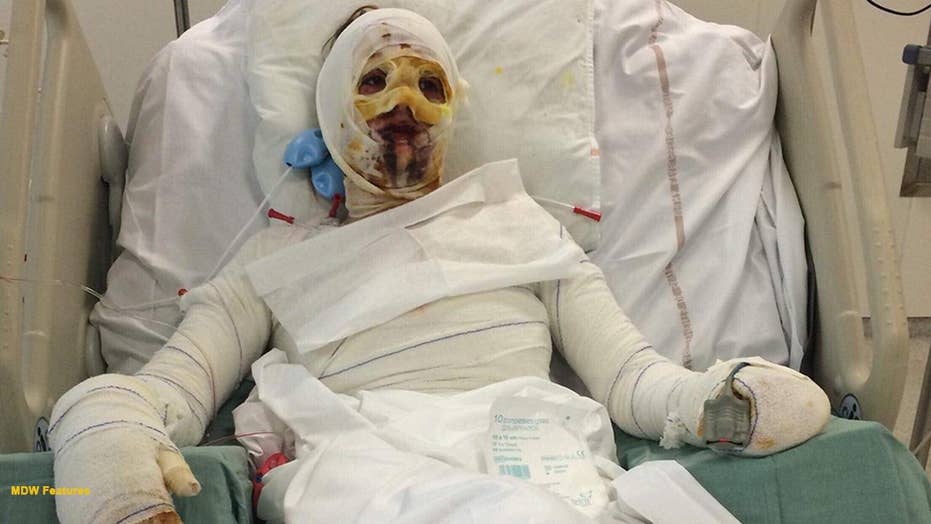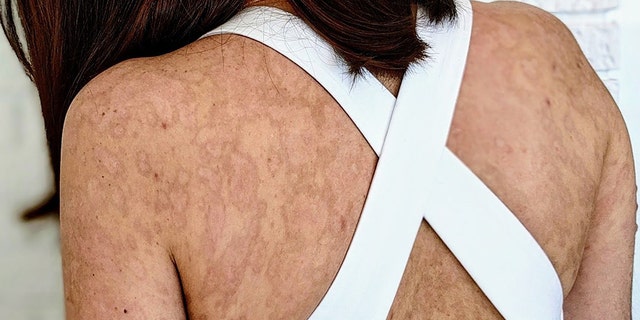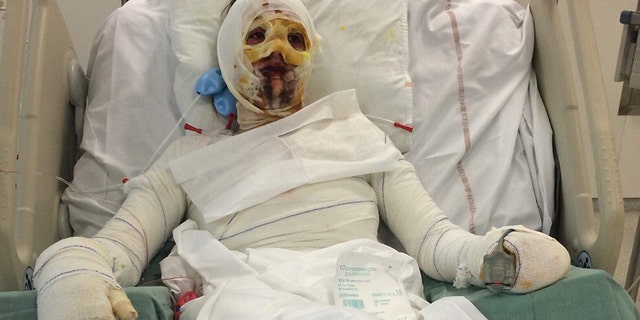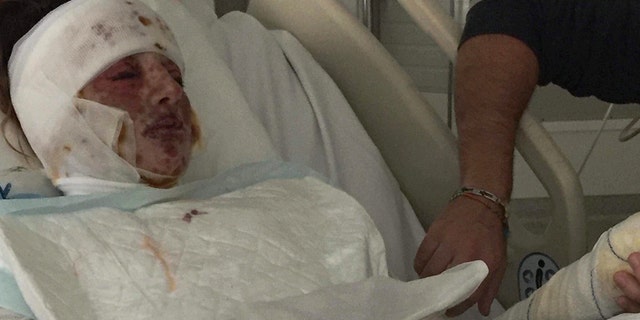
Allergic reaction to medication causes burns on 90% of woman’s body
A 29-year-old woman from France had taken penicillin before but after being prescribed the medication again to recover from a tonsillectomy she landed in an intensive care unit. She was diagnosed with toxic epidermal necrolysis, a life-threatening skin disorder that causes blistering and peeling of the skin.
A 29-year-old woman in France said she has learned to accept her body and embrace her new looks after an allergic reaction to medication left her with burns on 90 percent of her skin. Camille Lagier, who underwent a tonsillectomy in September of 2017, said her symptoms began after she was prescribed penicillin during her recovery, MDW Features reported.

Lagier, pictured after her injuries healed, said that her symptoms started with itchy eyes and some spots on her back.
(MDW Features)
“The first symptoms were itchy eyes and some spots on my back which got worse by the hour,” Lagier told the news outlet.
WARNING: GRAPHIC IMAGES AHEAD
She said she had taken penicillin before and hadn’t had any issues, but this time, within five days she landed in the intensive care unit at Marseille Hospital, where she was diagnosed with toxic epidermal necrolysis (TEN), a life-threatening skin disorder that causes blistering and peeling of the skin.
'MAJOR' INFECTION CONTROL DEFICIENCIES FOUND AT HOSPITAL FOLLOWING BABY'S DEATH
According to Johns Hopkins Medicine, the condition causes the patient’s skin to peel in sheets, leaving large raw areas of the body exposed, which allows skin fluids and salts to ooze from the damaged areas. Patients are susceptible to infection, with treatment typically requiring hospitalization in a burn unit. It’s typically caused by a reaction to a prescribed antibiotic or anticonvulsive medication.

She spent three weeks hospitalized while her wounds healed.
(MDW Features)
“I was covered in bandages because 90 percent of my skin was covered in second-degree burns and my eyes were delicately cared for because patients can go blind after TEN,” Lagier told MDW Features.
She said the reaction affected her mouth, tongue, genitals and trachea, and that she was unable to speak for days.
MICHIGAN SCHOOL DISTRICT CLOSES AMID OUTBREAK OF THE FLU
“I spent eight days with bandages all over my body and all over my face. I was awake, and every minute was torture,” she said. “After eight days, they took the bandages off my face and two days later took them off my hands.”
Lagier said she spent three weeks in the hospital before she was released, and that she felt anxious and regretted ever fretting about her looks.

She said her scars now remind her that she survived the horrifying ordeal.
(MDW Features)
“Now I love myself and my body with all its imperfections and scars,” she told the news outlet. “Every day I have the chance to see a sunset or to drink a cup of tea. Happiness isn’t the smile I wear when I’m around others, it’s the smile I wear when I’m alone, in front of my own reflection."
Lagier said she still has scarring from the ordeal, but that the scars serve as a reminder of survival. She has started a blog to help inspire others.
Source: Read Full Article
